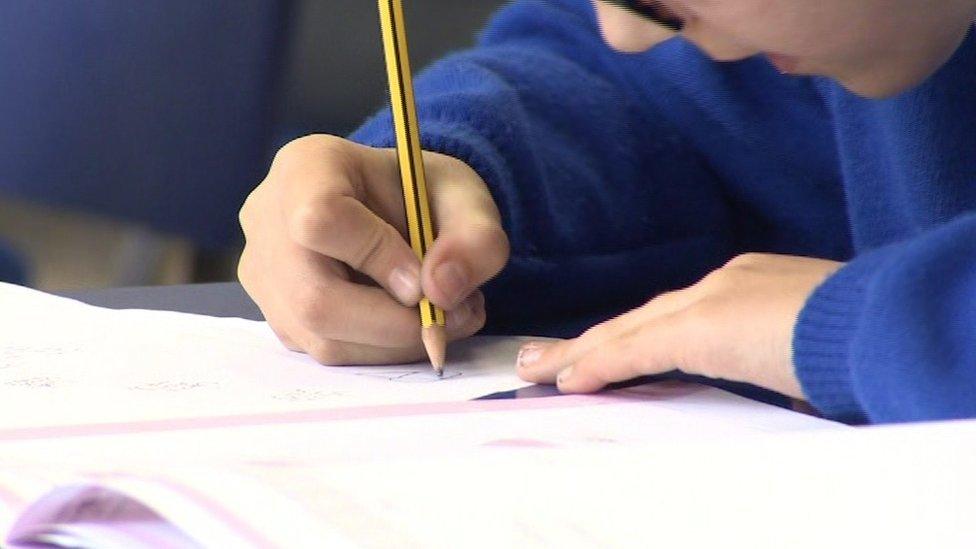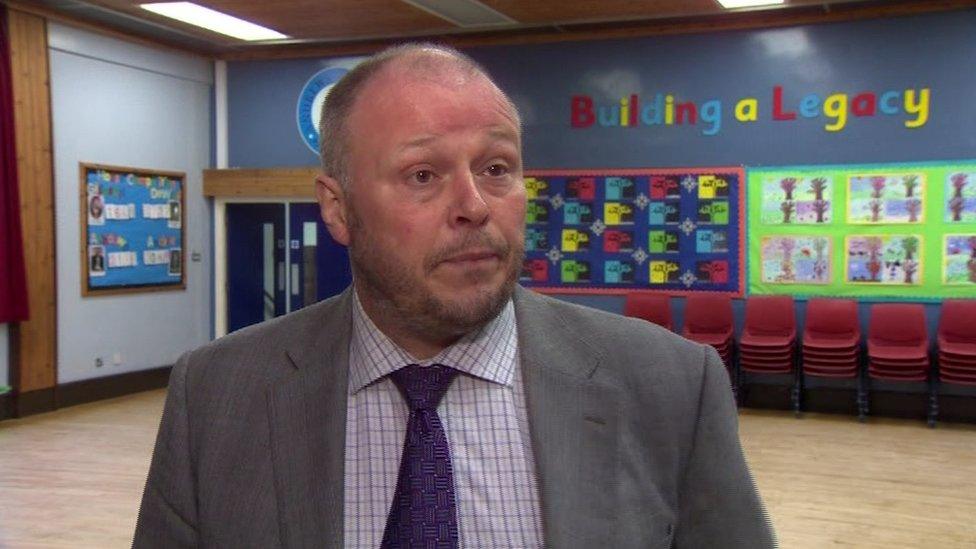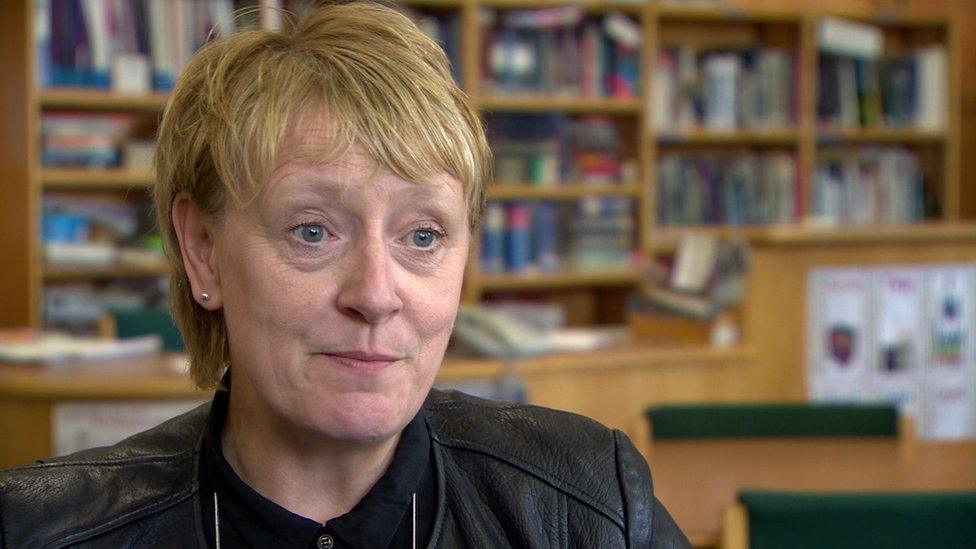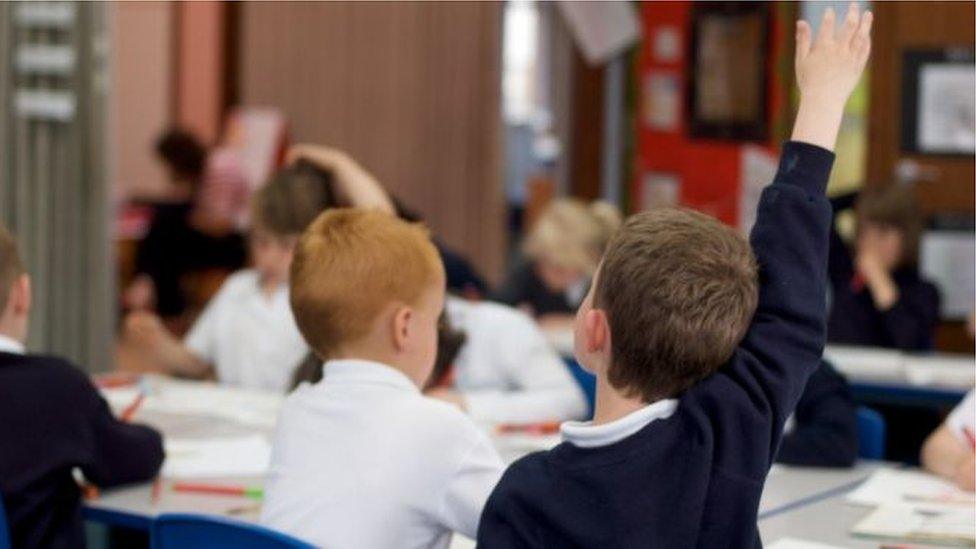Academic selection: Teachers allowed off the 'naughty step'
- Published

Many schools had continued to coach pupils for unregulated tests since the abolition of the 11-plus exam in 2008
Allowing teachers to formally prepare pupils for unofficial post-primary tests means those who were doing it anyway are now off the "naughty step".
It brings to an end almost a decade of pretence and defiance by schools who had disregarded official guidance.
However, the fact that the exams will remain unregulated means parents are still "stuck in the middle" of one of Stormont's most testing controversies.
There remains little consensus among politicians, parents or teachers.
'Perceived threat'
Ralph Magee, headmaster at Andrews Memorial Primary School in Comber, County Down, leads one of the schools that openly coached pupils for the unofficial transfer tests.
"From our perspective, we were on the naughty step," Mr Magee told the BBC's Good Morning Ulster programme.
"It was public that we were, because we were honest about what we were doing."

Headmaster Ralph Magee said he was one of the teachers 'on the naughty step' for disregarding official guidance
Last year, 93% of his P7 pupils completed the unregulated tests in a bid to secure a grammar school place.
The headmaster said the decision by Education Minister Peter Weir to reverse government policy removes the "perceived threat" to schools who had continued to coach pupils since the abolition of the 11-plus exam in 2008.
Parents 'stuck in the middle'
"What it doesn't change is the fact that testing is still unregulated and we still have two private companies essentially vying for business, and that I don't think is helpful," Mr Magee said.
"Parents in this position can't really be blamed, they're stuck in the middle."
After grammar schools decided to set their own tests, they split into two camps running totally different exams.
The Association of Quality Education and a group of Catholic grammar schools drew up separate entrance tests, now known as AQE and GL Assessment.
Pupils can choose to sit either one of the unofficial tests, both or none.
However, many teachers remain strongly opposed to academic selection at the age of 10 and 11.
'19th Century'
They include Pat McGuckian, the principal of St Patrick's High School in Keady, County Armagh, one of the top non-selective schools in Northern Ireland.

Pat McGuckian said a a child's academic future should not be decided at the age of 11
She said the minister's decision was a retrograde step.
"It is moving us back from to the 19th Century," she told the BBC. "I expected this to happen but I feel quite depressed this morning.
"Northern Ireland need an education system fit for the 21st Century, not the 19th Century."
She claimed the decision was "not based on any robust educational research".
"All of the research suggests that a child's ability is not fixed at 11 and if you label children at 11 you create a system of haves and have not."
- Published7 September 2016
